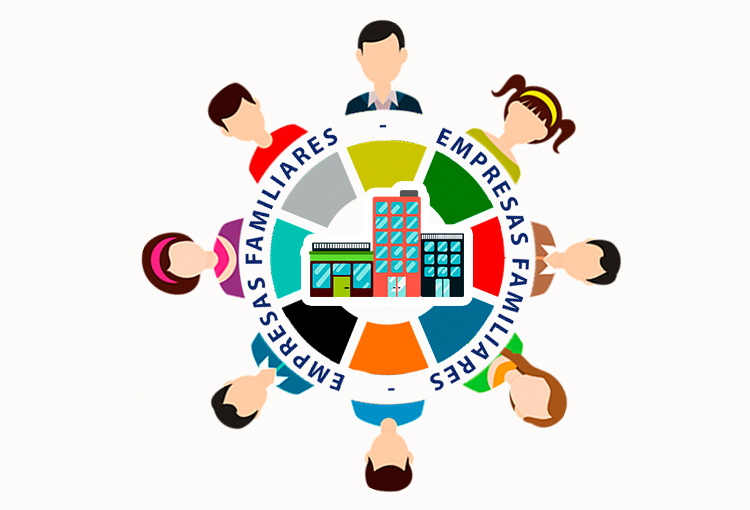Today we would like to talk to you about family businesses. But rest assured, we will not touch on the subject of the Peaky Blinders. We would rather tell you what are the advantages of contracting with a family business.
Some expert said… “I feel safer if I contract with a company where it is easy for me to talk to the owner”. Do you feel reflected in this? Of course, because there is a feeling of being close to those who can intervene seriously in the event of an eventuality. That’s what family businesses are all about.
Let’s define what a family business is
When we talk about family businesses, we should not think of the nona restaurant we usually go to, although that surely is too. But Forbes says some of the world’s biggest companies – and best-known brands – have deep-rooted family roots.
A family business, which generally falls within the MSME categorization, is one that has been created and managed by one or several families. But the concept is much broader. The patrimony and government are exercised by the members of the family. One of its strategic objectives is the continuity of the company in the hands of the next family generation (succession).
What the figures say about family businesses
The “Global Family Business Index,” a study by the Center for Family Business at the University of St. Gallen, Switzerland, highlights that family businesses make up between 80 and 90% de companies worldwide.
This is undoubtedly an important driver of GDP and job growth. Among all the companies on the list, they employ nearly 21 million people worldwide.
“They are much superior in the generational transition. It’s a surprising fact, because 44% de companies in the Family 500 are owned by the fourth generation or more. This is in contrast to less than 5% de companies in general,” says Peter Englisch, a contributor to the “Global Family Business Index” list.
What are the differentiating characteristics of family businesses?
- Family businesses are more willing to adapt to the customer. Family businesses have a greater tendency to adapt to the reality of MSMEs, since those are their origins and they are capable of understanding others. This does not happen with large-scale business models, in which “you buy as we sell or you don’t buy.”
- Technical support and customer service is more personalized. Family businesses usually offer more “you to you” attention. That is understandable because having 100 clients is not the same as having 100 thousand clients. Large corporations automate many processes, which, although they can also be automated in family businesses, it is easier to escalate a possible complication to a customer support technician than in a super corporation.
- They don’t offer you “Villas and Castles.” That which at first you think is free and then becomes a headache. Or to explain it with a popular saying: “Cheap is expensive,” and that is a phrase that never loses validity. With this we do not mean that family businesses, or MSMEs, are impossible to pay. It’s just that it is more complicated for them to offer business packages that offer multiple “free things.” Which, in most cases, end up being a “pot with smoke.”
- Guided configurations. Family businesses or MSMEs have a great advantage over large corporations when we talk about some configuration. And in the latter, the configurations are usually difficult for inexperienced users. And, obviously, it is very complex for a large corporation to take the time to provide personalized service to each user. What can happen in the cases of family businesses, since there is a much closer customer-supplier relationship.
- In the end you end up paying less. Although at first it may seem that the option of a large corporation is cheaper, over time we realize that this is not the case. Since these business models offer a small part of the service almost for free, but, as you want to grow, you must make payments that end up surpassing having hired a family business. Although it is totally valid, large corporations create solutions for very large people (with financial muscle) who pay a lot of money.
- Relationships tend to be long-lasting and sustained over time. This is the best of all. To say that we have had a service provider for 10, 15 or 20 years is a great privilege. Since it is a relationship in which both have grown and overcome multiple obstacles over time.
Our own experience
At TecnoSoluciones, created almost 20 years ago, we know a lot about this topic. After overcoming several obstacles derived from the economic and social environment in which we were born and began our growth, today we are clearer than ever what our values are.
A family business knows, lives, suffers and understands the reality of MSMEs, as experienced by its own customers. That’s why we can design and offer solutions that can help customers grow little by little.
We are not married to large corporations and do not force our customers to use specific brands. We rely on open source platforms (unlicensed open source) that help us grow more appropriately. As we always say… that they are modular, scalable and integrated with each other.
Something that is also very important for us at TecnoSoluciones is that we are very committed to customers, employees and society in general.
On the other hand, and to act according to what we profess, our suppliers are also small and medium-sized companies. Organizations that have owners who have committed to a business model that serves in a personalized way.
Finally, we can proudly tell you that we are also a family business. Our goal has always been to become, for our customers, a reliable supplier, who understands the reality of small businesses and who seeks to make the price-value ratio as good as possible.
Large emporiums that started as family businesses
Throughout history there have been multiple examples of families working together to achieve major economic goals. Today we leave you a list of some of the highlights.
1. Novartis
One of the largest drug manufacturers in the world. It was created in 1996 following the merger of Sandoz and Ciba-Geigy. Today, the descendants of Edouard Sandoz (who founded Sandoz in 1886) own a large number of Novartis shares.
2. Roche
Fritz Hofmann-La Roche founded a syrup company that today develops some of the best anti-cancer drugs in the world. His heirs still control at least half of the shares.
3. Walmart
The Walton family owns about half of Walmart through Walton Enterprises, according to Thomson Reuters data. The 50% es share is valuable enough to put five heirs among the richest people in the world.
4. Facebook
Mark Zuckerberg brought his family into his Facebook empire. Her older sister, Randi, was a marketing executive. Zuckerberg also gave his father 2,000,000 shares of Facebook stock.
5. Samsung Electronics
Lee Kun-Hee helped his father grow the Samsung Group into a global conglomerate. He is the president of Samsung Electronics’ flagship company, while his son (and expected successor) Jay Y. Lee is vice president. His daughters Boo-Jin and Seo-Hyun also hold executive positions within the company.
6. Volkswagen
Many members of the Piëch-Porsche family jointly own a majority stake in Volkswagen through their company Porsche Automobile Holding. The Piëch-Porsche are descendants of Porsche founder Ferdinand Porsche.
7. Kinder Morgan
After leaving Enron, Richard Kinder co-founded Kinder Morgan in 1997. With a massive pipeline portfolio. Kinder and his wife Nancy are Houston’s top philanthropists through their Kinder Foundation.
8. Nike
Phil Knight has been the face of the brand since he co-founded the company in 1964. Nike recently announced its son, Travis Knight, as president.
Did you find this content interesting? We loved talking about it because it made us remember where we come from. Ultimately, that is what keeps us focused on “where we are going.” If you want to communicate with us about this or other topics, contact us. And if you are interested in knowing everything we can offer you, go to our store. We will wait for you!





